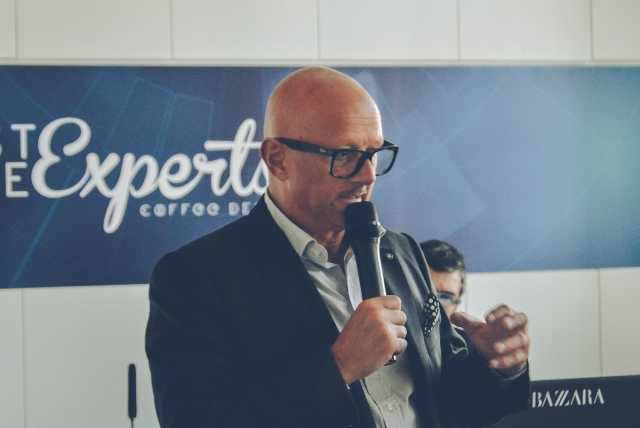Franco Bazzara, Bazzara Coffee president, discusses the price of a cup of espresso in Italy. Despite the fact that costs are steadily rising, Bazzara emphasizes the importance of helping the consumer understand the value of the product and the reasons why the espresso ritual is becoming increasingly expensive. Below, we share his opinion.
A bitter brew: coffee price rises
by Franco Bazzara
TRIESTE, Italy – “Why is it such a big deal to pay 1.50€ for a coffee nowadays? How can we help people understand the true value of this product? Uniting associations, improving communication and expanding the audience are certainly the first steps to take. The goal? To shift the focus from cost to value. A well-brewed coffee deserves its fair price, just like any other high-quality product. But first, let’s dive into the deep-rooted causes of the coffee industry crisis once again, to better understand the current situation and the possible actions to be taken.
Climate change
Brazil, Vietnam, and Africa: three distant regions, all coffee-growing lands, bound together by a common challenge – climate change. Brazil is the world’s largest exporter of Arabica coffee, with about 30% of the coffee beans in international markets coming from this South American giant, which in recent years has been facing a severe climatic crisis due to ongoing and devastating droughts.
The lack of water, particularly in Minas Gerais (a strategic coffee-growing region), disrupts the cultivation cycle, leading to a significant drop in production and a subsequent rise in prices.
As the Italian saying goes, “Se Atene piange, Sparta non ride”, meaning that when one suffers, we all suffer. Vietnam, a global leader in Robusta production, is dealing with extreme weather events, such as Typhoon Yagi, which hit the country in September 2024, destroying a large part of its Robusta crops. And, to top it all off, Africa – the birthplace of coffee – has been losing arable land for coffee cultivation due to persistently high temperatures. This crisis is deeply affecting entire communities whose lives depend on the production of coffee beans.
Logistics and geopolitical crises
Transporting green coffee from producing countries to consuming ones is also becoming more expensive. The rising prices of energy, the fair recognition of labor in producing countries, and the increasing instability of container rates (which are harder to find) are all contributing to the price hike. On top of that, conflicts and geopolitical crises, especially in the Middle East with the Suez Canal blockage, are further complicating supply chains and making trade routes more difficult.
Increasing demand and speculation
There are several factors driving up the financial indices linked to coffee. One of them is the growing global demand: coffee culture has become a worldwide phenomenon, no longer exclusive to Western countries. This shift has led to an increase in coffee consumption in emerging markets, particularly in India, China, and parts of the Middle East, further complicating the already challenging recovery of the sector.
Furthermore, coffee is not just an agricultural product, it is also a commodity traded on financial markets, introducing speculative dynamics. When investors anticipate a potential drop in harvests, they buy coffee futures, which drives up prices and forces companies to pay more for the beans, a cost that ultimately impacts the final consumer.
Bazzara: policies and inflation
Bazzara adds: “Even good practices, like sustainability, come with a price. Consider the EUDR regulation adopted by the European Parliament in 2023 to combat deforestation. This law requires companies involved in coffee trade (and other raw materials) to ensure that the products entering the European market are not linked to deforestation, whether legal or illegal. Companies must provide proof of traceability and certification of the origin of these raw materials. Inflation also plays a significant role: other products tied to coffee, such as milk and sugar, have seen price hikes in recent years.
It is precisely at such times that Italy, an emblem of excellence and ‘Great Beauty’ and the world-renowned brand of ‘Made in Italy’, should enhance its position globally. We need to raise awareness about what truly lies behind a cup of coffee. Education, culture, and innovation… that’s no longer enough. We need to:
• Unite the various associations to speak with one voice, gaining strength and influence.
• Inform consumers about the hard work behind the coffee industry, helping them understand that the price of a cup should be tied to the “value” it represents. We must all take responsibility for educating the media about the “beauty” and, most importantly, the complexity of our industry.
• Bring our issues to major public platforms, with the support of leading figures in the coffee world, on programs hosted by prominent journalists like Bruno Vespa and Alberto Angela, just to name a couple.
Bazzara concludes: “To sum up, we should come together and spread the word – build networks, something we’ve always strongly advocated for at Bazzara. We will be bringing these issues, among others, to the eighth edition of the Trieste Coffee Experts at the Savoia Excelsior Palace – Starhotels Collection in Trieste. Together, we are stronger”.


















